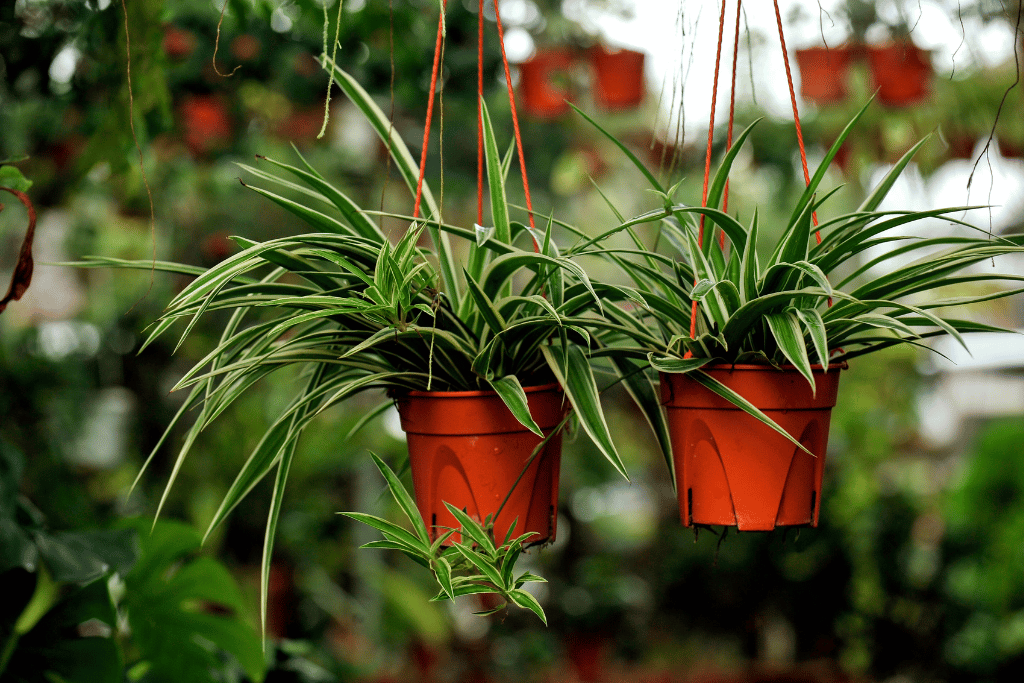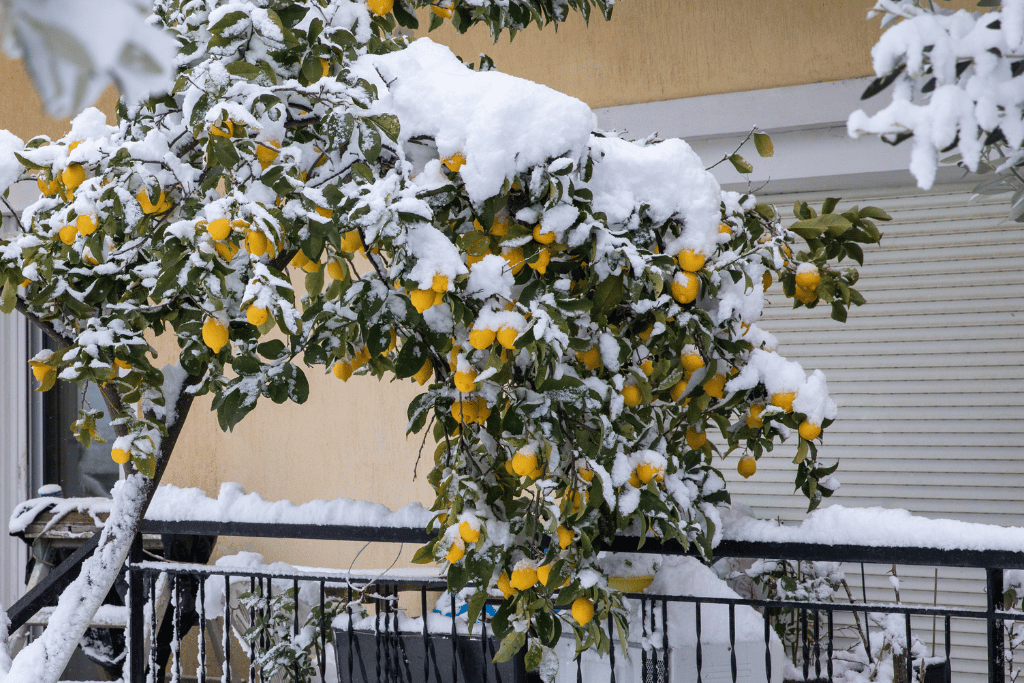
It’s time for the ultimate clash of survival between two powerful forces. In one corner stands a beloved lemon tree with its tantalizing and tart fruits. And fighting in the opposite corner is an implacable winter with its frigid temperatures and blizzards! Let’s get ready to witness this battle of strength like never before…
Who will be the victor in this crucial clash of life and death? Can the lemon tree endure winter’s chill or will it succumb to its frigid embrace, leaving us with a bitter aftertaste? Will we lose our beloved fruit-bearing companion or can it defy all odds and persist another season?
Join us on this thrilling and eccentric expedition, as we watch a lemon tree take on the elements of nature. Will it be an amusing disaster or a victory for determination? Only time will tell in this Game of Survival – Can Lemon Tree Survive the Winter?
Can a Lemon Tree Survive Winter? Let’s Find Out!
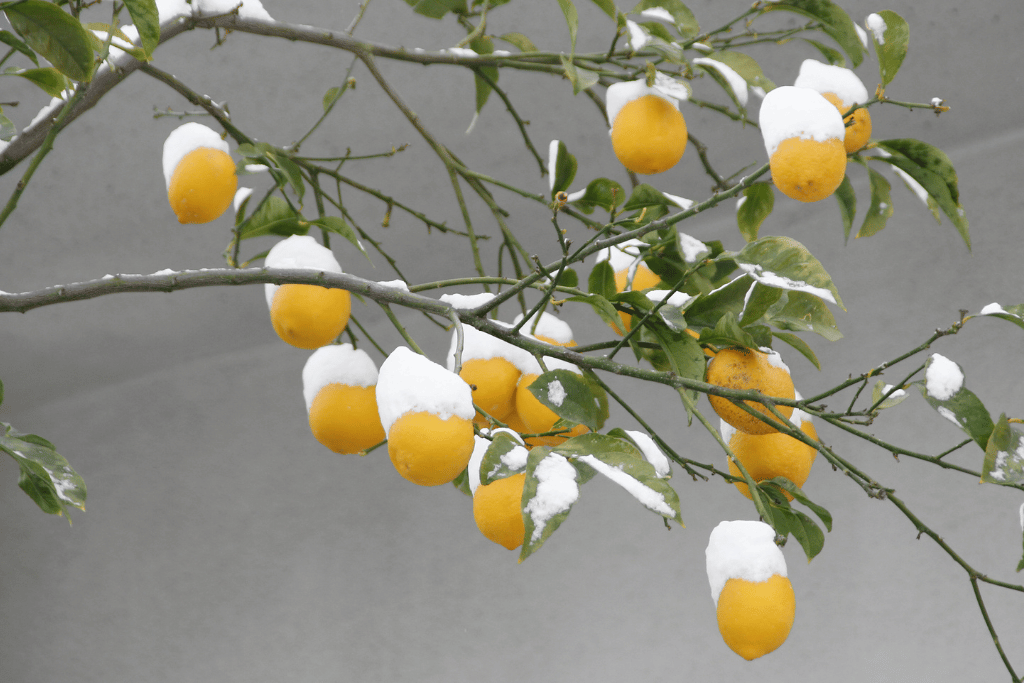
As winter approaches, it’s time to ask ourselves the important question: will our beloved lemon trees survive until spring? While we’re content with a cup of hot chocolate and a cozy blanket, these precious citrus trees may not be so excited about the chill in the air.
Introduction to lemon trees
Introducing the star of our show—the lemon tree! This small evergreen member of the citrus family, with its oval-shaped leaves and delightful fragrant blossoms that turn into luscious yellow fruit, is native to Asia but was brought to Europe during The Middle Ages. Since then lemons have spread their joy all around the world from Southern Europe to South America.
Lemon trees and winter: A chilly relationship
Now, let’s get to the heart of the matter. Can a lemon tree survive winter? The answer is yes, yet it isn’t quite that easy. Lemon trees are tender and might be damaged or even die when exposed to frosty temperatures for a long time. If you live in an area with severe winters, you may want to think about taking some precautions to guard your lemon tree against harm.
Protecting Your Lemon Tree From Winter Blues
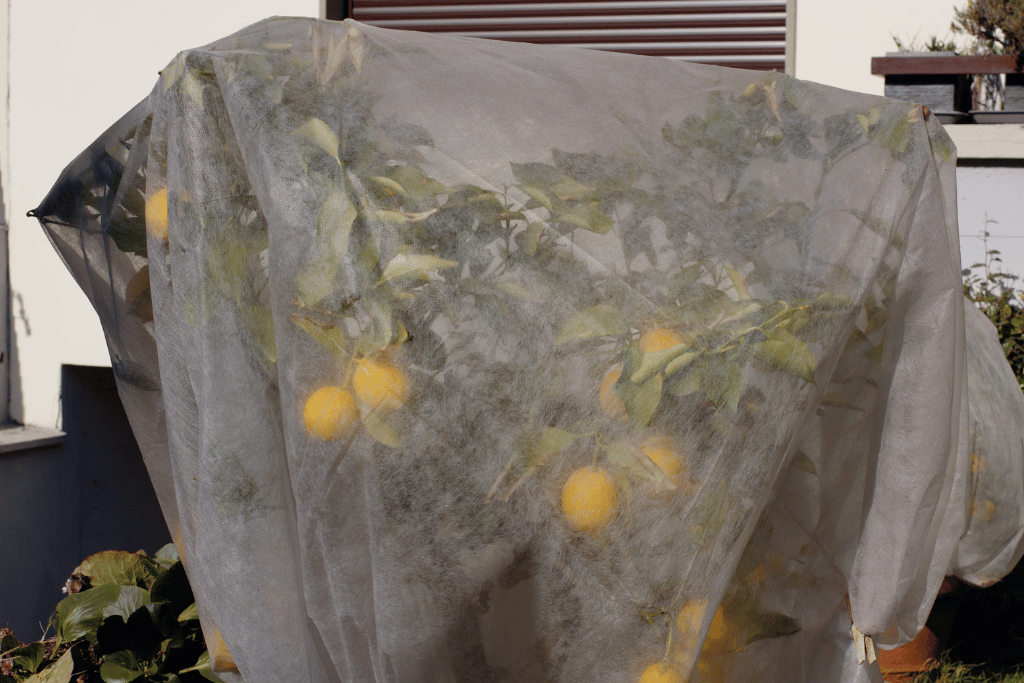
Here are some effective ways to protect your lemon tree during the winter months.
Understanding your lemon tree’s cold tolerance:
Before you take any steps to safeguard your beloved lemon tree from the chilly winter weather, it is essential to know its level of cold tolerance. Natively found in subtropical regions, these trees can endure temperatures between 50°F and 80°F; if the temperature drops lower than this threshold however, frost damage may occur – or even worse – death. For that reason, close monitoring of temperatures should be undertaken when there’s a risk it might fall below 50° F so as necessary precautions are taken on time.
Pruning your lemon tree:
Shield your lemon tree from the winter chill with a proactive pruning. You’ll be able to eliminate any dead or damaged limbs, ensuring that the tree’s structure is strong and robust enough to withstand icy temperatures. Additionally, you can use this time as an opportunity to trim back branches in order for it to absorb more sunlight and nutrients efficiently – all while stylizing it into something beautiful.
Mulching your lemon tree:
Winterizing your lemon tree is possible with effective mulching. Insulating the soil around the roots helps to keep it from freezing and also prevents drying out of its roots due to retained moisture. You can employ any organic material, such as straw, leaves or wood chips for this purpose. Remember to spread a thick layer of mulch around the base of the lemon tree so that it covers up all its root zone completely.
Covering your lemon tree:
Shielding your lemon tree from the cold is an excellent way to keep it safe. You can use a range of materials, such as burlap, blankets or plastic, for covering purposes. Once temperatures drop at nightfall, place the cover over your tree and remove it during warmer times of day – just be sure not to let any fabric come into contact with its leaves and branches as this could harm it otherwise!.
Moreover, be sure to take off the protective wrapping when temperatures climb above 50°F as this can ultimately cause your tree to overheat.
Watering your lemon tree:
Nourishing your lemon tree remains vital even during the winter months. While not as much water is necessary to maintain your tree’s health, it is essential that you ensure its soil stays moist. Lack of moisture causes the roots to become dehydrated and weakens them significantly, making them more prone to frost damage. Employ a soaker hose or drip irrigation system for optimal results during this period- water with steadiness but caution as well; make sure you avoid splashing any moisture on its leaves!
How Low of a Temperature Can a Lemon Tree Bear?
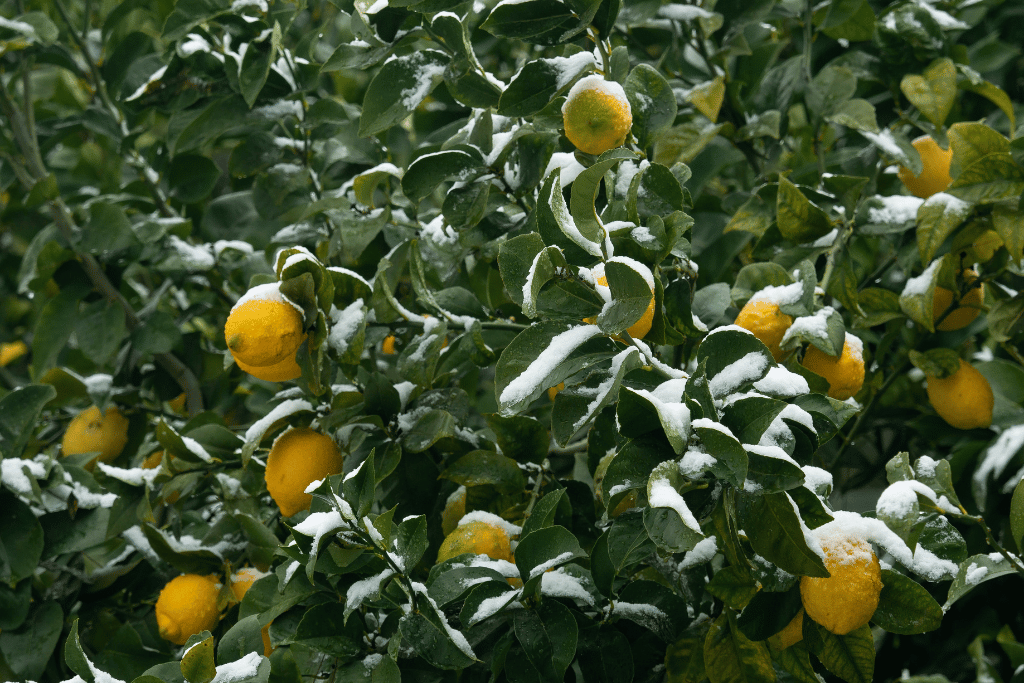
Lemon trees are tolerant of temperatures that range from 50°F to 80°F (10°C to 27°C), yet they can suffer serious harm when exposed to freezing weather. In particular, prolonged exposure below 25°F will likely result in leaf drop and twig dieback as well as the death of your tree. To protect your lemon tree this winter season, it is imperative that you keep an eye on the thermometer – especially since anything below 25 degrees Fahrenheit could spell disaster for your subtropical plant!
Can a Meyer Lemon Tree Survive Winter Outdoors?
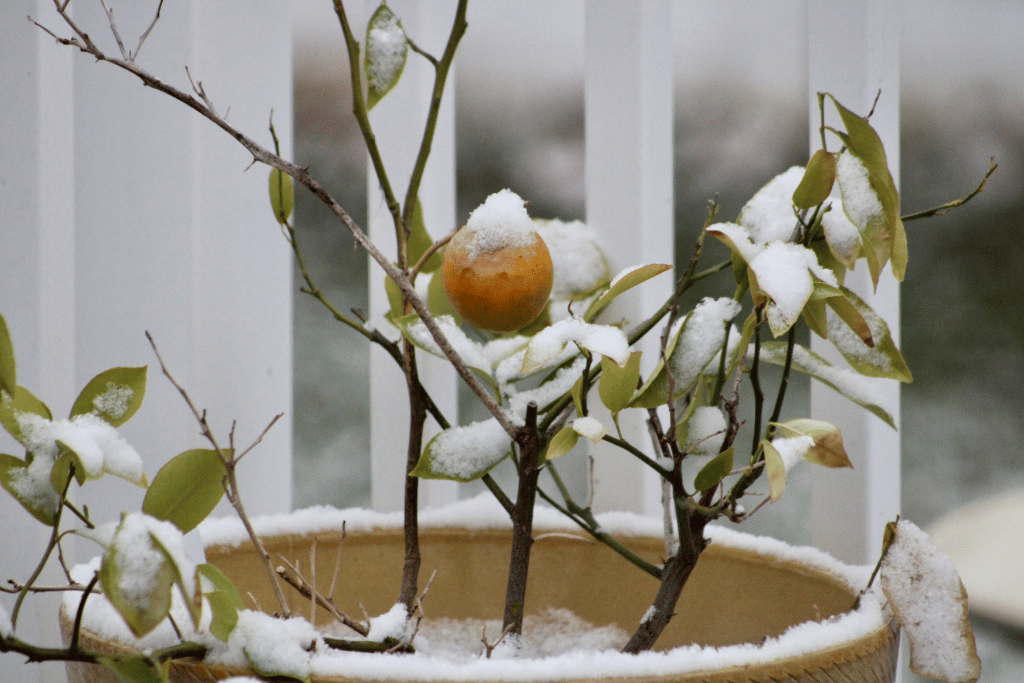
Gardeners who want to add a touch of brightness and freshness to their backyard often turn towards Meyer lemon trees as the perfect addition. Cultivated for centuries in China, these evergreen trees bear juicy, fragrant fruit that is known for its sweet taste. But one question asked by many gardeners remains – will my Meyer lemon tree survive winter outside? The answer lies within your climate – if temperatures stay warm enough during those months, then yes!
Meyer lemon trees may be resistant to the cold, but they aren’t invincible. Usually, temperatures as low as 20°F (-7°C) won’t kill them; however, extended exposure to such temperatures could cause harm or even death. Consequently, whether a Meyer lemon tree can survive winter outdoors depends upon the severity of your area’s winter weather conditions.
In more gentle climates, Meyer lemon trees can be left outdoors without any extra maintenance since temperatures normally don’t dip below freezing. Nonetheless, in areas with particularly frigid winters where the temperature regularly plummets beneath zero degrees Celsius, it is essential to take precautionary measures to protect your tree from the sharp coldness.
To ensure your Meyer lemon tree thrives during the winter months, consider bringing it indoors. Containerized trees are easily transportable and can be kept in a temperature-controlled environment within your home to protect them from harsh weather conditions while ensuring they continue to grow and bear fruit.
Protecting your tree from the cold winter months is a must, and one way to do so is through insulation using burlap or frost cloth. Furthermore, pruning in autumn can help safeguard against damage caused by heavy snowfall or ice buildup: trimming off any dead branches as well as reducing its size will ensure it’s best prepared for the harsh weather conditions.
Lemon Tree Survival Rates in Various Regions of the U.S
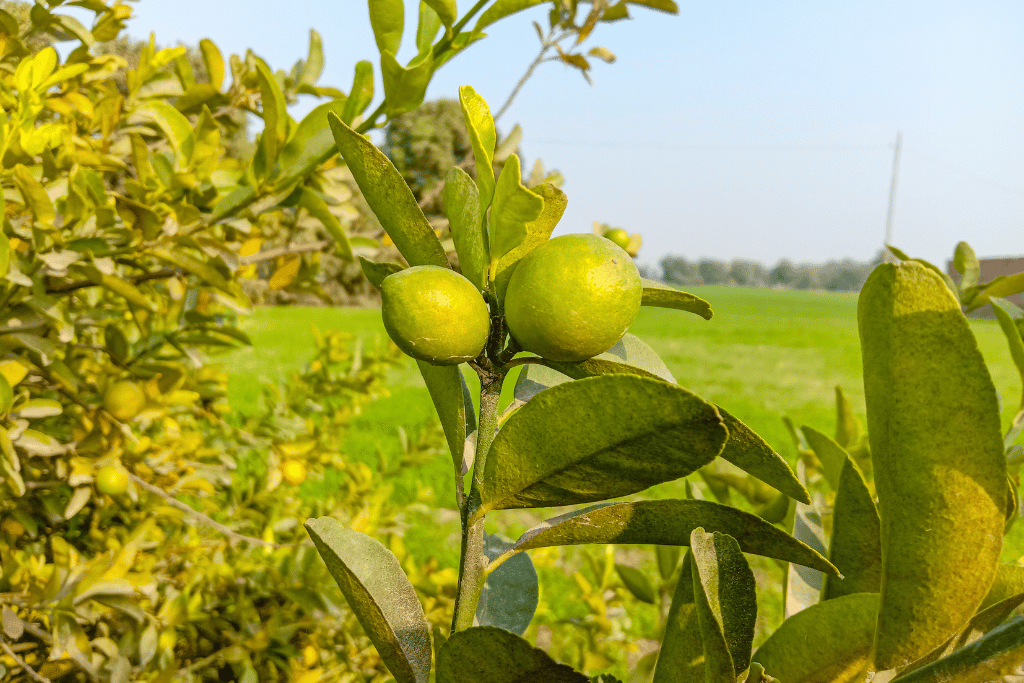
Gardeners are drawn to lemon trees for their aromatic flowers and delicious fruit, but with winters often being cold in certain climates, the question of survival arises. Can these plants withstand conditions outside of their natural subtropical home?
For best results, lemon trees flourish in warm climates with lots of sunshine and well-drained soils. In the United States, such ideal conditions can be found in California, Florida or Texas where temperatures stay mild all year long. With the right care and environment, lemon trees have great potential for survival no matter where they are planted!
California
In California, the ideal climate for lemon trees yields a massive crop of citrus – with each tree reaching heights of up to 20 feet and having an impressive lifespan of up to 50 years. With mild winters and dry, warm summers in its favor, California is a prime location for growing lemons. But don’t forget Florida! Not only do they produce quality lemons year-round due to their subtropical climate consisting of hot summers and mild winters but they are also incredibly popular too!
Texas
Lemon trees are able to grow and flourish in the warm, arid climate of Texas; particularly in its southern regions. The soil is often well-draining which gives these citrus plants an ideal growing environment.
North Carolina
But what about regions with colder climates, such as North Carolina? Can a lemon tree survive winter in North Carolina?
North Carolina, with its humid subtropical climate of mild winters and sizzling, moist summers, is a suitable environment for cultivating lemon trees. But to ensure their survival during the winter season when temperatures can dip below freezing point, special protective measures must be taken.
In order to give lemon trees in North Carolina the best odds of thriving, they should be located in a sheltered spot, like by a south-facing wall or inside an insulated greenhouse. During particularly frigid nights, it is also suggested to cover them with frost cloths or blankets for extra protection from cold temperatures.
For further success in colder climates, opt for varieties such as Meyer lemons and Ponderosa lemons that are naturally a bit more resistant to chillier conditions.



